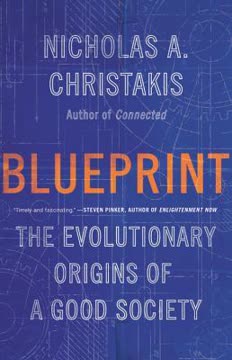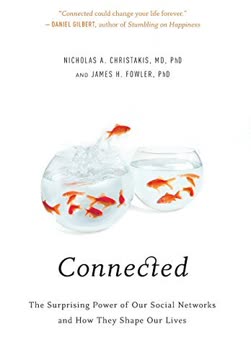Key Takeaways
1. Our Common Humanity is Rooted in a Universal Social Blueprint
The fundamental reason is that we each carry within us an evolutionary blueprint for making a good society.
Beyond differences. Despite the vast and compelling diversity of human cultures, a deeper reality exists: our similarities are more profound than our dissimilarities. Just as two mountains may appear different in height from a plateau, their underlying geological forces reveal a common origin. This perspective helps us appreciate that while human activities reshape details, they don't fundamentally alter the core structure of our social existence.
Shared inheritance. Astronauts often experience an "overview effect," realizing the triviality of human differences when viewing Earth from space. This sense of awe, possibly an evolved emotion, quiets self-interest and fosters connection. Similarly, exposure to foreign cultures, initially highlighting differences, ultimately reveals universal human traits like finding meaning, loving family, and enjoying friends. This shared inheritance, shaped by natural selection, is written in our genes.
Innate proclivities. Natural selection has equipped us with innate capacities and desires to join groups in specific ways. These proclivities, reflecting our natural social state, are primarily good and practical. We are compelled to form societies, not just because we can, but because we must, feeling good when we help others.
2. The Social Suite Defines Our Innate Social Order
At the core of all societies, I will show, is the social suite.
Eight universal features. Human societies, vibrant and complex, arise from within us, guided by an innate capacity to band together. This "social suite" comprises eight universal features that characterize groups, even though they originate within individuals. These features work synergistically to create functional, enduring, and morally good societies.
Interconnected elements. The social suite includes:
- Individual identity: Foundation for relationships and reciprocity.
- Love for partners and offspring: A distinctive human experience, built on mate-bonding.
- Friendship: Long-term, non-reproductive unions, rare in animals but universal in humans.
- Social networks: Universal mathematical patterns of connection.
- Cooperation: Supported by interactions with friends and in-group preference.
- Preference for one’s own group (in-group bias): Enforces group boundaries.
- Mild hierarchy (relative egalitarianism): Prestige accorded to those who teach or connect.
- Social learning and teaching: Efficient knowledge transmission, present in all cultures.
Evolutionary rationality. These features are evolutionarily rational, enhancing our Darwinian fitness and collective interest. They bind communities, define boundaries, identify members, and minimize hatred. Our genes guide us to create a social environment that, in turn, favors genes useful in that environment, internalizing universal social axioms over time.
3. Natural Experiments Reveal Predictable Social Structures
Most efforts to form societies with radically different rules either collapsed altogether or, like Taransay, came to resemble the society from which they originated.
Societies from scratch. Natural experiments, like shipwreck survivors or intentional communes, offer unique insights into how societies form without explicit scientific manipulation. The BBC's "Castaway 2000," for instance, showed participants replicating familiar societal structures despite desires for something new. These real-world trials, though imperfect, reveal consistent patterns.
Shipwreck lessons. Analysis of historical shipwrecks, such as the Julia Ann and Grafton, demonstrates that successful survival colonies exhibited strong leadership, cooperation, and friendship—all elements of the social suite. Conversely, failures like the Batavia or early Pitcairn Island, often devolved into violence due to a lack of these social mechanisms, exacerbated by factors like alcohol or resource competition. The Grafton vs. Invercauld comparison on the same island highlighted how leadership and cooperation were critical for survival.
Communal strivings. Utopian communes, from 19th-century American experiments like Brook Farm to Israeli kibbutzim, largely failed or reverted to conventional social forms. Attempts to abolish nuclear families or suppress individuality, for example, proved unsustainable. The Shakers, despite celibacy, thrived by embracing cooperation, mild hierarchy, and individual identity. These cases underscore that while humans can deviate from the social blueprint, radical departures often lead to collapse.
4. Love and Pair-Bonding are Deeply Evolved Human Traits
Mutual attachment solves an evolutionary conundrum.
Beyond lust. While sexual attraction is easily explained by evolution, the human drive to form loving, special attachments—pair-bonding—is more complex. This capacity, rooted in our evolutionary past, is a biologically guided impulse, distinct from mere sexual connection. It's a universal feature, even amidst diverse marriage practices like monogamy, polygyny, or polyandry.
Evolutionary origins. Pair-bonding likely evolved from an ancient tendency, shared with some other mammals, to form stable sexual relationships. In humans, this may have been an exaptation of mother-infant bonding mechanisms, repurposed for mates. The "male provisioning hypothesis" suggests that women's pair-bonding signals paternity certainty, securing male investment in offspring, especially during vulnerable periods like pregnancy. This exchange of love for support is a powerful evolutionary driver.
Cultural variations, universal core. Marriage systems vary globally, from the informal Hadza monogamy to the complex Turkana polygyny with bride-wealth, or even the Na's "visiting" relationships. Yet, even in arranged marriages, love often emerges post-union, and "mutual attraction/love" is a universally highly ranked attribute for partners. This suggests that while culture shapes marital expression, the underlying capacity for romantic love and attachment is a deep, persistent feature of human nature.
5. Friendship and Social Networks are Universal and Genetically Influenced
Friendship is powerful.
Beyond kin. Friendship, defined as a volitional, long-term, mutually affectionate, and supportive relationship, typically between unrelated individuals, is a universal human capacity. Unlike kin-based altruism, friendship involves a relaxation of tit-for-tat accounting, driven by mutual goodwill. This bond is so strong that people make profound sacrifices for friends, even risking their lives, as seen in heroic acts.
Global patterns. Cross-cultural studies confirm friendship's ubiquity and consistent core features like mutual aid and positive affect. While expressions vary (e.g., self-disclosure is less common in some cultures), the underlying impulse is universal. The developmental course of friendship, from focusing on shared activities in childhood to abstract notions of loyalty and empathy in adolescence, is also consistent worldwide.
Genetic underpinnings. Our genes play a role in shaping our friendship patterns. Studies on twins show that the structure of social networks, including the number of friends and an individual's centrality, is partly heritable. This "social niche construction" suggests that humans are genetically predisposed to create social environments that benefit them, influencing who they befriend and how their networks are structured. Friends tend to be more genetically similar than strangers, akin to fourth cousins.
6. Cooperation is an Evolved Strategy, Sustained by Fairness and Punishment
Cooperation is a central organizing principle of human life.
The cooperation puzzle. Cooperation, defined as contributing to a group benefit at a personal cost, is widespread in humans, even among strangers, despite the evolutionary advantage of selfish "free-riding." This is seen in everyday decency, disaster relief, and large-scale collective action. Kin selection explains cooperation among relatives, but most human interactions are with non-kin, requiring other mechanisms.
Mechanisms of cooperation.
- Direct reciprocity: Repeated interactions foster cooperation, as individuals learn to reciprocate good deeds.
- Indirect reciprocity: Reputation, spread through gossip, incentivizes cooperation, as people are kind hoping for future kindness from others.
- Punishment: The willingness to pay a personal cost to punish free-riders (altruistic punishment) is universal and promotes cooperation. Experiments like the ultimatum game show people prioritize fairness, even at a cost.
Group dynamics. Cooperation is harder in larger groups due to anonymity, but social networks with strong pairwise ties can sustain it. The option for individuals to "opt out" of social interactions (loner strategy) can paradoxically facilitate the evolution of punishment, which in turn supports cooperation. This complex interplay ensures cooperation persists, even if it cycles with defection and isolation.
7. Social Learning and Cumulative Culture Drive Human Adaptation
No human has to learn everything on his or her own; we can all rely on others to teach us, a hugely efficient practice present in all cultures.
Efficiency of knowledge. Social learning, the ability to acquire information and skills from others, is a highly efficient adaptive strategy, especially in variable environments. It allows individuals to gain knowledge without incurring the costs of individual trial-and-error. Teaching, a costly form of altruism, further enhances this efficiency, observed even in animals like meerkats and chimpanzees.
Cumulative culture. Humans possess a unique capacity for cumulative culture, building upon prior innovations across generations. This is evident in complex technologies like poison arrows or the "tsunami stones" that transmit vital survival knowledge over millennia. This accumulated cultural and intellectual capital is a birthright, enabling unprecedented progress and adaptation.
Population size matters. The preservation and complexity of culture are strongly linked to population size. Larger populations:
- Are less vulnerable to knowledge loss from individual deaths.
- Offer more opportunities for innovation and social learning.
- Can sustain more complex toolkits, as seen in Oceanic island cultures.
This highlights how the social suite's elements—cooperation, friendship, and social learning—are foundational for cultural development.
8. Genes Extend Beyond Our Bodies, Shaping Our Social Worlds
Genes can have effects at a distance, beyond the bodies of animals in which they are found.
Exophenotypes. Genes not only shape an organism's body and mind but also influence the world around it, a concept called exophenotypes. Examples include:
- Animal artifacts: Bowerbirds building elaborate bowers to attract mates, or oldfield mice constructing complex burrows with escape tunnels. These external structures are genetically guided.
- Parasite manipulation: Flukes altering snail behavior to increase their own transmission, or fungi turning ants into "zombies" for spore dispersal.
- Action at a distance: One animal's genes affecting another's behavior without direct contact, like a sick fish influencing its schoolmates' predator avoidance.
Social epistasis. In humans, genes can influence how we construct our social environments. Traits like extroversion, partly genetic, can lead individuals to introduce friends, shaping the social network around them. This "social niche construction" means one person's genes can affect the fitness of others, creating new selection pressures. The social world we create is partially under genetic control, feeding back to modify our genes.
Coevolutionary feedback. This dynamic creates a powerful feedback loop: social animals are programmed to create a social milieu, and natural selection then favors traits optimized for that environment. Our social interactions, which require and benefit from facial uniqueness, can affect what genetic variants we carry, demonstrating that our social lives have shaped our bodies.
9. Animal Societies Offer Profound Insights into Our Own Social Nature
If even elephants and dolphins can have friends, this highlights how much all humans have in common.
Convergent social evolution. The striking similarities in social organization among diverse species like primates, elephants, and whales—despite their distant common ancestors—demonstrate convergent evolution. This suggests that living socially presents universal challenges, leading to similar adaptive solutions across the animal kingdom. These shared patterns reinforce the fundamental nature of the social suite in humans.
Shared social traits.
- Individual identity: Apes, elephants, and dolphins exhibit self-recognition (e.g., passing the mirror test) and recognize individuals beyond kin, crucial for non-kin cooperation.
- Grief: Primates and elephants mourn deceased loved ones, showing deep emotional attachment to specific individuals.
- Cooperation: Chimpanzees and elephants demonstrate coordinated problem-solving and altruistic aid, even for non-kin.
- Social learning: Elephants learn crop-raiding strategies, and chimpanzees transmit tool-use techniques, forming distinct "cultures."
Beyond anthropomorphism. While some debate whether terms like "friendship" apply to animals, their complex, long-lasting, and mutually supportive non-reproductive bonds, often involving third-party recognition of relationships, strongly suggest genuine social connections. This continuity with the animal world underscores that our social capacities are not unique but are deeply rooted in evolutionary biology.
10. Our Social Blueprint Guides Us Towards a Fundamentally Good Society
The arc of our evolutionary history is long. But it bends toward goodness.
Sociodicy. Despite humanity's history of fear, ignorance, and violence, a "sociodicy" can be found: a vindication of society's inherent virtue. The social blueprint—our pre-wired capacity for love, friendship, cooperation, and learning—underpins our species' general success in living together. These elements are not just pleasing but are essential for human flourishing.
Beyond determinism. While our genes play a role in shaping society, this is not a rigid biological determinism. Our genetic inheritance includes a capacity for "bounded flexibility," allowing us to adapt deftly to diverse circumstances and create varied cultures. The social suite primes us for certain behaviors, but culture and individual choice also exert powerful influences.
Navigating the future. Understanding this blueprint is crucial as new technologies like AI and gene-editing (CRISPR) offer unprecedented power to reshape our social world and even our biology. While these innovations could lead to dystopian outcomes if misused, the deep-seated nature of the social suite makes it hard to fundamentally alter our core social instincts.
Optimistic outlook. The integration of social and biological sciences reveals the deep sources of our common humanity. Our species' evolution has favored traits that enable cooperation and kindness, suggesting that a good social order is not unnatural but is, in fact, our default. We are fundamentally good, pre-wired to make societies that embody virtues.
Last updated:
Review Summary
Blueprint explores how human societies are shaped by evolutionary biology, arguing that our genes encode a "social suite" of universal traits found across cultures. These include individual identity, love, friendship, cooperation, and social learning. While acknowledging cultural differences, Christakis contends that all societies share fundamental similarities rooted in our evolutionary history. The book draws on diverse examples from shipwrecks to communes to support its thesis. Reviewers praised the book's insights and readability, though some felt it was overlong and didn't fully prove its central argument.
Similar Books



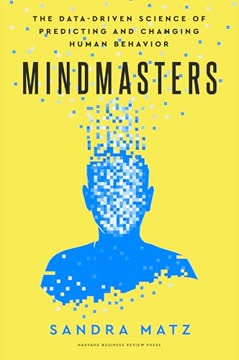
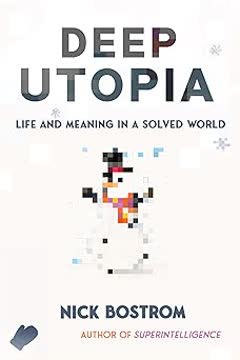

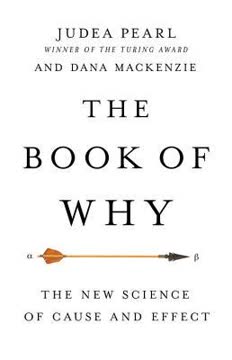
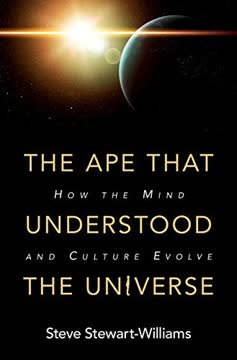
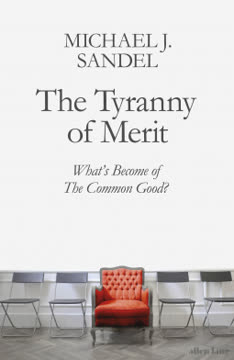
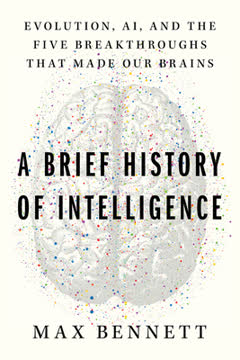
Download PDF
Download EPUB
.epub digital book format is ideal for reading ebooks on phones, tablets, and e-readers.
